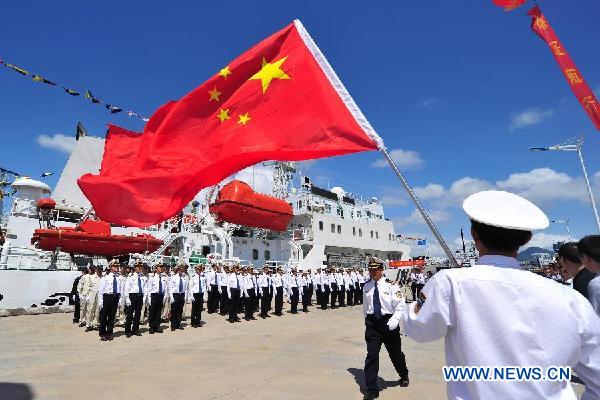
Much has been made in past weeks about remarks made by Captain James Fanell, the director of Intelligence and Information Operations for the Pacific Fleet at the recently held West 2014 symposium in San Diego, Calif.
His presentation included the assessment that China’s navy (the PLAN) had broadened its operational role beyond simply carrying out a “Taiwan counter-intervention” strategy to now include training and preparations to conduct a “short, sharp war” with Japan over disputed territory in the East China Sea. A minor furor ensued, and Pentagon spokesman Rear Adm. John Kirby ultimately sought to dissociate himself from Fanell’s plainspoken assessment.
In searching for a transcript of Fanell’s remarks, I came across the text of what he said at the same symposium one year earlier. This year’s remarks served, as he indicated, as a sort of “I told you so,” in which he reinforced the meticulously worded and fact-based assessments he made of China’s intentions last year. This year’s effort was no less factual or meticulous. Several observations about what he said are worthwhile:
Fanell used open press sources.
Nothing he said was classified; rather, virtually every fact he relayed about not only what the PLAN was doing in East Asia but how it was described in the media, came from proudly boasted quotes in open-source Chinese media. While few of us take the time to scour Chinese newspapers, there are a number of dedicated souls who do little else, and the work they do consistently reveals a nation dedicated to patiently, but relentlessly, advancing its claims and influence in the region.
China prefers “short, sharp wars.”
Whether one looks at China’s war with India (1962), the Soviet Union (1969) or with Vietnam (1979), it is clear that its strategic aims revolve around the desire to achieve rapid, limited results leaving them in an advantageous position, in addition to teaching the other side “lessons” about China’s will and power. Captain Fanell’s assessment of recent operations by the PLAN confirm that—lo and behold!—China is training to conduct war in a manner that China prefers. One wonders what third parties thought of the talk of “shock and awe” that preceded our campaign in Iraq in 2003. That the identified opponent of China’s future aggression was Japan should not be surprising, given the rising acrimony over disputed territory that is driven in no small measure by the very transparent intent Fanell identifies with Chinese leadership.
Fanell knows of what he speaks.
His presentation was no “from the hip” shot from someone without background or knowledge. The presentation methodically laid out in chronological order a bill of indictments of China’s maritime expansionism. He made up nothing. An earnest student of the region does not need to search for hidden meaning in China’s actions, as China has succeeded in alienating others in the region to a degree that brings their intent into sharp relief.
There is a double standard at work.
Let’s face it. Chinese military literature is replete with examples of “Senior Colonel (insert name)” peddling all manner of over-the-top thinking, while there exists a cottage industry of U.S. analysts who trip over themselves to opine as to why such views are outliers and not broadly representative. In Fanell’s case, he provides a truthful, fact-based, and direct narrative that certainly contrasts with much of the pabulum we are provided about China’s increasingly murky rise, and the spokesman for the Secretary of Defense is called to account. Would that it were not so.
The Department of Defense has a vested interest in seeing to it that we do not produce our own legion of “Senior Colonel (insert name)s.” And when military officers exceed their brief, they should be called to account. But Captain James Fanell has done nothing of the sort here. He has—in an unclassified forum—provided a sober and insightful analysis of a subject that many in our domestic policy obsessed country refuse to face, and that is that there is more to China than smiling faces, slothful pandas, and Confucian inscrutability. There is a growing threat to its neighbors and to the interests of the United States.




